#travel and tourism industry
Text
Tourism Market: Trends, Growth, and Industry Players
Introduction
The global tourism market is a dynamic sector that continually evolves in response to changing consumer preferences, technological advancements, and global events. As we delve into the current landscape, it is crucial to explore the tourism market size, growth patterns, industry trends, and key players that shape the sector's trajectory.
Tourism Market Size and Growth
The tourism market has witnessed remarkable growth over the past decade. According to the latest data the global international tourist arrivals reached 1.5 billion in 2022, marking a 4% increase from the previous year. The tourism industry's robust growth is attributed to factors such as increased disposable income, improved connectivity, and a growing middle class in emerging economies.
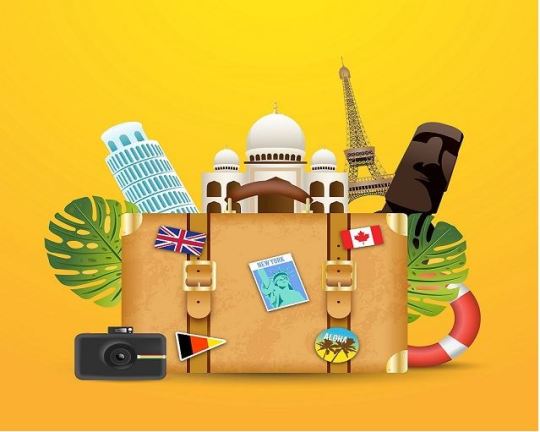
The COVID-19 pandemic, however, significantly impacted the industry in 2020 and 2021. International tourist arrivals plummeted by 74% in 2020, representing the largest decline in the industry's history. As the world recovers from the pandemic, tourism is experiencing a resurgence. The UNWTO estimates that international tourist arrivals will surpass pre-pandemic levels by 2023, emphasizing the sector's resilience.
Tourism and Hospitality Industry Trends
The tourism and hospitality industry is undergoing transformative changes driven by technological advancements and shifting consumer behaviors. One notable trend is the rise of sustainable tourism. Travelers are increasingly prioritizing destinations and businesses that adopt eco-friendly practices. Hotels, airlines, and tour operators are responding by implementing sustainable initiatives to meet the demands of environmentally conscious travelers.
Another trend shaping the industry is the integration of technology. From mobile apps for seamless bookings to virtual reality experiences, technology is enhancing the overall travel experience. The use of artificial intelligence and big data analytics is also becoming prevalent, enabling businesses to personalize services, predict consumer preferences, and optimize operations.
Tourism Industry Players
The tourism market is comprised of a diverse range of players, including governments, international organizations, tour operators, airlines, hotels, and online travel agencies (OTAs). Notable industry players such as Airbnb, Expedia, and Booking. com have disrupted traditional hospitality models, offering travelers a wide array of accommodation options and personalized experiences.
Governments play a crucial role in shaping the tourism landscape through policies, infrastructure development, and destination marketing. Collaborations between public and private sectors are essential to foster sustainable growth and address challenges such as over-tourism and environmental impact.
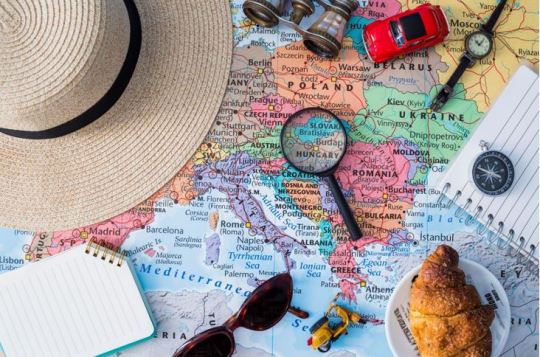
Tourism Market Analysis
A comprehensive analysis of the tourism market involves assessing key factors such as market dynamics, competitive landscape, and regulatory environments. The Asia-Pacific region has emerged as a powerhouse in the tourism sector, with countries like China, India, and Japan experiencing substantial growth. In contrast, established destinations in Europe and North America continue to attract millions of tourists annually.
The post-pandemic recovery has prompted a shift in travel preferences, with a surge in demand for domestic and outdoor experiences. Travelers are seeking off-the-beaten-path destinations, contributing to the diversification of the tourism market.
Travel and Tourism Industry Outlook
Looking ahead, the outlook for the travel and tourism industry is optimistic. The industry is expected to rebound strongly, driven by pent-up demand, increased vaccination rates, and the easing of travel restrictions. The global tourism market is projected to reach $11.38 trillion by 2027, growing at a CAGR of 6.1% from 2020 to 2027.
In conclusion, the tourism market is a vibrant and resilient sector that continues to adapt to changing circumstances. Understanding the market size, growth trends, industry players, and emerging dynamics is crucial for stakeholders navigating the evolving landscape. As the world reopens for travel, the industry's ability to innovate and embrace sustainable practices will play a pivotal role in shaping its future success.
#market research#business#ken research#market analysis#market report#market research report#travel and tourism sector#travel and tourism market#travel and tourism industry#tourism sector#tourism market trends#tourism market size#tourism market players#tourism market forecast
2 notes
·
View notes
Text
What are the key technologies driving digital transformation in travel and tourism?

The travel and tourism industry is changing rapidly thanks to digital transformation. This change is making travel easier, more personalized, and more efficient. Let’s look at the key technologies driving this transformation and how they’re reshaping the industry.
Artificial Intelligence (AI)
AI involves computers performing tasks that typically require human intelligence, such as learning, problem-solving, and making decisions.
How is AI used in travel?
Personalized Recommendations: AI analyzes user data to suggest personalized travel options like destinations, hotels, and activities tailored to individual preferences.
Chatbots: AI-powered chatbots handle customer queries 24/7, providing instant responses and support, improving customer service.
Predictive Analytics: AI forecasts travel trends and demand, helping companies prepare and optimize resources.
Benefits of AI
Improved Customer Experience: Travelers receive recommendations and support tailored to their preferences.
Operational Efficiency: Automating tasks saves time and reduces errors.
Better Decision-Making: Companies make informed decisions based on AI insights.
Big Data and Analytics
Big data refers to large amounts of information that can be analyzed to reveal patterns, trends, and associations.
How is big data used in travel?
Customer Behavior Analysis: Understanding how customers book and what they prefer helps companies tailor their services.
Dynamic Pricing: Adjusting prices based on demand and competition in real-time helps maximize revenue.
Market Predictions: Forecasting future travel trends allows companies to better cater to customer needs.
Benefits of big data
Enhanced Customer Understanding: Companies know their customers better and can offer more relevant services.
Effective Marketing: Targeted campaigns reach the right audience, improving marketing efficiency.
Resource Optimization: Businesses can allocate resources more efficiently, reducing waste and increasing profitability.
Internet of Things (IoT)
IoT involves connecting everyday devices to the internet, enabling them to send and receive data.
How is IoT used in travel?
Smart Hotels: Rooms equipped with IoT devices allow guests to control lighting, temperature, and more from their smartphones, enhancing comfort.
Luggage Tracking: Real-time tracking of baggage improves security and convenience for travelers.
Safety Measures: IoT devices monitor and enhance safety in hotels and airports, providing a safer environment for travelers.
Benefits of IoT
Convenience: Travelers enjoy a more comfortable and customized experience.
Efficiency: Streamlined operations and real-time tracking enhance operational efficiency.
Safety: Improved safety measures protect travelers and staff.
Blockchain Technology
Blockchain is a secure and transparent way of recording transactions.
How is blockchain used in travel?
Secure Transactions: Blockchain ensures secure payments and reduces fraud, making transactions safer.
Loyalty Programs: Managing and redeeming loyalty points becomes easier and more transparent with blockchain.
Digital Identities: Secure storage and sharing of travel documents and IDs streamline identification processes.
Benefits of blockchain
Security: Transactions are safe from fraud and tampering.
Transparency: Clear and trustworthy records of transactions build customer trust.
Efficiency: Simplifies processes and reduces paperwork, making operations smoother.
Augmented Reality (AR) and Virtual Reality (VR)
AR adds digital elements to the real world, while VR creates a completely virtual environment.
How are AR and VR used in travel?
Virtual Tours: Travelers can explore destinations and hotels virtually before booking, helping them make informed decisions.
Immersive Experiences: AR enhances travel experiences with interactive elements, such as guided tours and real-time information.
Staff Training: VR simulations provide a risk-free environment for training staff in various scenarios.
Benefits of AR and VR
Customer Engagement: More interactive and engaging experiences enhance customer satisfaction.
Informed Decisions: Travelers can make better choices with virtual previews of destinations and accommodations.
Innovative Marketing: Unique ways to market destinations and services attract more customers.
Cloud Computing
Cloud computing involves delivering computing services over the internet, allowing access to data and applications from anywhere.
How is cloud computing used in travel?
Flexible IT Infrastructure: Easily scalable to meet varying demands, helping businesses adapt to changing needs.
Real-Time Data Access: Access and share data from anywhere, enabling better collaboration and decision-making.
Cost-Effective: Reduces the need for expensive hardware and maintenance, lowering IT costs.
Benefits of cloud computing
Lower Costs: Reduces IT expenses, making operations more cost-effective.
Accessibility: Data and applications are accessible from anywhere, improving flexibility.
Collaboration: Enhances teamwork with real-time data sharing, boosting productivity.
Mobile Technology
Mobile technology involves using smartphones and tablets to access information and services.
How is mobile technology used in travel?
Mobile Booking: Travelers can book flights, hotels, and activities on the go, providing convenience and flexibility.
Travel Apps: Provide personalized experiences and real-time updates, enhancing the travel experience.
Location-Based Services: Notifications and recommendations based on location help travelers make the most of their trips.
Benefits of mobile technology
Convenience: Easy access to information and services anytime, anywhere.
Engagement: Better customer interaction and satisfaction through personalized services.
Real-Time Information: Immediate updates on travel plans and changes keep travelers informed.
Conclusion
Digital transformation in the travel industry is revolutionizing how we travel. Technologies like AI, big data, IoT, blockchain, AR/VR, cloud computing, and mobile technology are making the industry more efficient, personalized, and secure. As these technologies continue to evolve, the future of travel looks even more exciting and innovative.
Stay updated with these advancements and explore how they can enhance your travel experiences or business operations. Embrace the digital transformation in the travel industry, and get ready for a smarter, more connected journey.
0 notes
Text
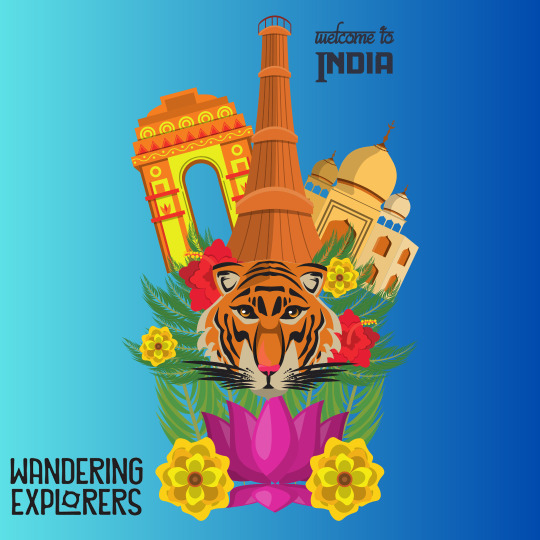
Wandering Explorers: Embark on Memorable Journeys of Travel and Tourism
Immerse yourself in the dazzling world of travel and tourism with Wandering Explorers. Let them guide you to breathtaking destinations and extraordinary adventures. Book your next journey today and create memories that will last a lifetime. https://wanderingexplorers.in/
#travel and tourism industry#travel packages#travel and tourism#tour packages#holiday tour packages#vacation deals#travel and tours packages
0 notes
Text

The Three Sisters of Glenorchy, New Zealand. One of the many instagram-popular sites which tourists like me flock to.
#original photography#photographers on tumblr#australian photography#australian photographer#original photographer#travel photography#original artist#landscape photography#new zealand road trip#new zealand holidays#Glenorchy wharf#instagram#tourism industry
13 notes
·
View notes
Text
When White (or allistic?) people travel...

I am gonna travel a bit next week. Well, "a bit" really means: I am gonna dip across the border for a few days into the Netherlands (I am living really close to the border) and bike around a bit. At least as long as the weather is gonna play along.
But it has reminded me of this one thing I always saw when I was traveling.
And I am to this day not entirely sure whether it is a white people thing or an allistic people thing. And that is this need to travel often into a fantasy land.
Now, there are those people who will travel to some hotel ressort and hang at the beach for ten days. Which is valid. Laziness is a myth. All power to you. Just consider to maybe not do it on indigenous land. (No, really. The gif is there for a reason. Do not travel to Hawai'i.)
But there is this other kind of travel happening too. The travel, where you wanna see this other country - but not as it really is, but this idealized fantasy version of it.
I most often saw this in relation with Japan. Because let's face it. A ton of people, who are into Japan, are into Japan because of anime and the stuff they have "learned" through anime, with maybe some Japanese self-mythology put into it when it comes to stuff like honor and samurai and what not. And then they travel to Japan and are very, very disappointed, because the Japan they arrive in is not anime!Japan, but just another place. Another speck of earth so to speak. Where just normal people live, not anime characters. Sure, there are cool shrines and temples to visit. But all in all it is just a place like any other. It is not fantasy.
But it is a thing I have seen with a lot of white people travelling. They do not want to visit a place but the fantasy version of that place. Like, with Hawai'i they wanna go palm beach, hula dancing, aloha and what not. They do not wanna go to a place where the indigenous population is exploitated and gets further and further pushed from their land. If they go to South Africa, they wanna go to this trendy place, watch some whales and what not, not see the rampant poverty and crime. Or when they go visit Greece, they wanna see that country with those nice ruins and stuff, eat some good food, and once again not be confronted with the poverty.
I still remember when I was a teenager and got send onto this Christian youth trip to Corfu, Greece. Now, it was knda funny, because it was a Christian youth trip - but our hostel was right next to the local brothel. But the pimp was actually a super nice guy, just so you know. Like, I got bullied on that trip by some of the other teens and at one time he just threatened those bullies to set his dog onto them, before inviting me and my friends over for dinner.
Now, the entire trip was two weeks and every day there was the option to go somewhere. Either to the beach or to see some sights. I did not go along. Partly because of the bullying, partly because I never got the idea of "seeing the sights". Instead I made friends with some local kids and hung out with them. At times I went with them on some trips they did with their families... And the irony is: I have seen much more of that island than anyone else on that trip. Just not... the ruins and stuff, that everyone else wanted to see. But I saw a farm where I got to taste some fresh honey, got a street dog to the vet, somehow ended up on a small fishing boat, was at a party where a kid got babtized, and visited a couple of villages that usually tourists just drive through. I learned a lot about the place and how the people live there.
And I do realize that it is not feasable for everyone from that group of 60 teens to just do that. I get that. But I also have to wonder... What is the value to visit the same ruin that has already been photographed like 2 million times?
Again, I get hanging at the beach. I do. But... looking at stuff that I can look at online? Yeah, no.
I guess what my rambling is aiming at...
Tourism kinda sucks. And even the entire idea, that it somehow helps the communities just does not really match the reality. Because the truth is that the money generated through communism mostly gets gobbled up by big companies, while the tourism at the touristy places also makes everything more expensive for the people who actually live their.
And tourists just do not want to see the people actually living there. They are not interested in the real place. Just in a fantasy. A fantasy that the tourism sector tries to uphold.
But it is... not really good, is it?
Like, hundreds of people or even thousands visiting either ruins or cultural heritage sites is not actually a good thing. It harms the environment and everything. And in the end it also hurts the people actually living around it. And they kinda have more of a right to be there than any tourist.
We really need to rethink how we travel and how we vacation. Because this isn't it.

28 notes
·
View notes
Text
9 Days in Portugal
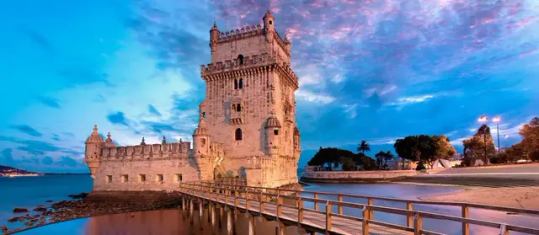

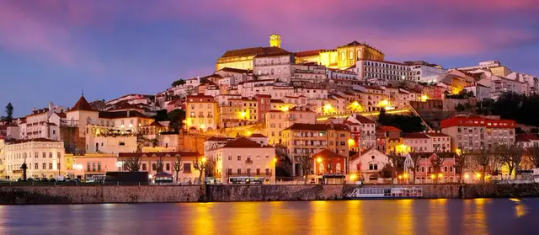
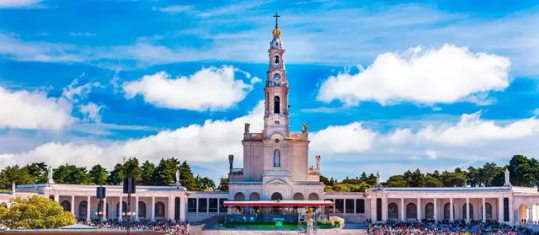


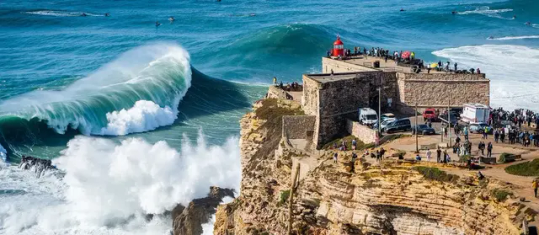
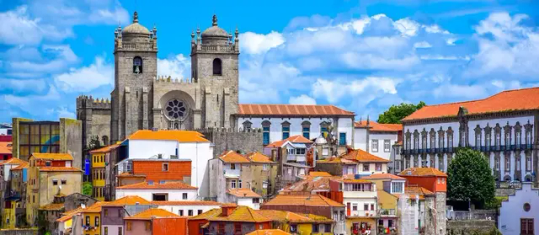
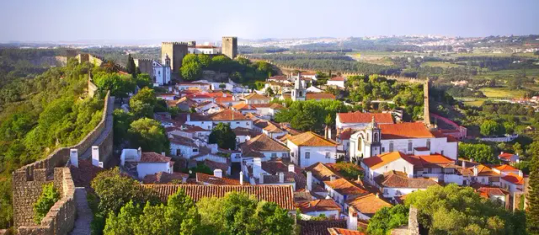
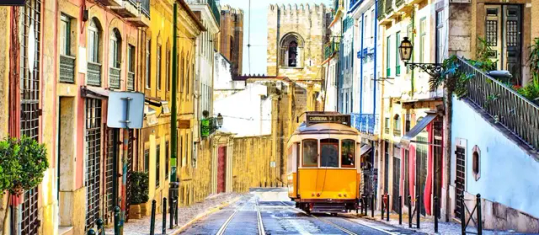
Portugal in 9 Days
8 Nights in Destination
Aug 14 -22, 2024
Be captivated by the vibrant cities of Portugal on a spellbinding journey through its most inspiring destinations. Explore the lively neighborhoods of Lisbon and the fairytale castles of Sintra before traveling to the holy city of Fatima, filled with enigmatic spiritual landmarks. Finally, uncover the heart of Porto, known for its delicious wine and colorful buildings.
THE PRICE INCLUDES
Peace of mind with our included coverage
International flights: US - Lisbon - US.
7 nights accommodation in Charm category hotels.
7 breakfasts.
All transfers
TOURS
Tour of Lisbon
Excursion to Sintra
River Douro Boat Tour
Obidos, Nazare & Fatima Excursion
Christ Convent in Tomar & Coimbra Tour
Panoramic Tour of Porto
Visit to Aveiro
Total Package Price - $ 2,540.00 (per person)
Call or text 6784691977 or email [email protected]
www.stilltravelsllc.com
**Prices and availability are subject to change
#portugaltravel#portugal#porto#obidos#aveiro#fatima#nazareportugal#lisbon#sintra#sintraportugal#slowtravel#slowtravelling#travellife#luxurylife#luxurytravel#luxury#vacations#travels#travelinspiration#travelagent#travellovers#traveltheworld#stilltravels
#luxury hotel#luxury lifestyle#luxury living#luxury travel#luxury vacation#romantic vacation#slow living#slow travel#still travels#vacation#travel#travel agency#travel ideas#travel in style#travel in time#travel industry#travel influencer#travel inspiration#travel inspo#travel itinerary#travel lovers#tourist attraction#traveling#tourism#travel blog#portugal#porto#sintra
6 notes
·
View notes
Text

"What 'The White Lotus' gets right is that tourism is theater, the ultimate immersive experience in which everyone and everything has a role to play."
I was a travel writer for many years. I dig into what makes the HBO show's depiction of tourism so on-point. Down to that time in Belize I was greeted by hotel staff at the boat dock ... clad in matching ensembles that included pith helmets.
Read the full story here.
Photo by Fabio Lovino/HBO.
17 notes
·
View notes
Text
youtube
A short film of 10 minutes about Mount Everest and impact of life around it.
Please watch and let's protect the fragile environment of this beautiful Earth.
You will enjoy the mesmerizing shots and powerful storytelling.
#Everest#sagarmatha#Tourism#Pollution#nature#wanderlust#protection#travel#photography#plastic#metal#industry#Nepal#India#World#Earth#sherpa#Youtube
3 notes
·
View notes
Link
Your travel website design should use a professional theme that is responsive and visually appealing, and works well with plugins for adding features such as Google maps, SEO, and forms for travel profiles and be able to create lists for email newsletters.
5 notes
·
View notes
Text
Blockchain and Travel

There is a lot of potential for blockchain technology in the tourism and travel industry. It highlights the current challenges faced by the industry, such as lack of transparency and trust in booking and payment systems, and the lack of standardized and reliable information about destinations and attractions. The article explains how blockchain technology can address these challenges by providing a secure and transparent booking and payment system, creating a decentralized platform for sharing reliable and standardized information, and incentivizing travelers to share accurate and useful information. The article also provides real-world examples of blockchain being used in the tourism and travel industry and concludes by discussing potential risks and the importance of appropriate safeguards.
6 notes
·
View notes
Text
Leading Companies Shaping the Tourism Industry
The tourism industry is a vast and dynamic ecosystem comprised of a myriad of companies that play pivotal roles in facilitating travel, accommodation, and experiences for millions of people worldwide. From global hotel chains to innovative travel agencies, these companies form the backbone of the tourism sector, driving innovation, setting trends, and shaping the traveler experience. In this exploration, we shine a spotlight on some of the leading companies in the tourism industry, highlighting their contributions, market dominance, and impact on the global travel landscape.
The Walt Disney Company
As a titan of the entertainment industry, The Walt Disney Company extends its influence into the realm of tourism through its iconic theme parks and resorts. With destinations spanning the globe, including Walt Disney World Resort in Florida (attracting over 20 million visitors in 2023), Disneyland Resort in California, and Disneyland Paris Resort in France, Disney Parks, Experiences, and Products division continues to attract millions of visitors annually. Recent statistics indicate that Disney's theme park segment generated over $70 billion in revenue in 2023, underscoring its status as a dominant player in the tourism industry.

Click here to read more about: Tourism Market
Marriott International
Marriott International stands as one of the world's largest hotel companies, boasting a diverse portfolio of over 7,600 properties across 133 countries and territories. With a collection of renowned brands, including Marriott Hotels, Sheraton, and The Ritz-Carlton, Marriott International caters to a wide range of traveler preferences and budgets. Recent market data reveals that Marriott International's global revenue reached $23 billion in 2023, driven by strong performance in key markets and strategic expansion initiatives.
Expedia Group
Expedia Group is a leading online travel platform that connects travelers with a vast network of hotels, airlines, rental car companies, and tour operators. Through its flagship brands, including Expedia, Hotels.com, and Vrbo, Expedia Group offers a comprehensive suite of travel services, enabling travelers to plan and book their trips with ease. Recent financial reports indicate that Expedia Group's gross bookings exceeded $135 billion in 2023, demonstrating its significant market share and influence in the online travel sector.

Visit this link: Tourism Industry
Airbnb
Airbnb revolutionized the travel industry with its peer-to-peer lodging marketplace, offering travelers a diverse array of accommodations, from private homes and apartments to unique stays and experiences. With a global presence in over 100,000 cities worldwide, Airbnb has reshaped the way people travel and experience destinations, fostering a sense of belonging and cultural immersion. Recent data suggests that Airbnb's revenue surpassed $19 billion in 2023, fueled by a resurgence in travel demand and a shift towards alternative accommodations.
Booking Holdings
Booking Holdings operates as one of the world's leading online travel agencies, offering a wide range of booking services for flights, hotels, rental cars, and activities. Through its portfolio of brands, including Booking .com, Agoda, and Priceline, Booking Holdings serves millions of travelers each year, providing them with access to a vast selection of accommodations and travel experiences. Recent financial disclosures indicate that Booking Holdings' total revenue reached $74 billion in 2023, reflecting its continued growth and market leadership in the online travel space.
In Conclusion
The tourism industry is powered by a diverse array of companies that cater to the diverse needs and preferences of travelers worldwide. From hospitality giants and online travel platforms to innovative disruptors, these companies shape the traveler experience, drive industry innovation, and contribute to the economic vitality of destinations around the globe. As the tourism industry continues to evolve in response to changing consumer behaviors and technological advancements, these companies will play an essential role in shaping the future of travel and hospitality.
#tourism industry#tourism industry companies#tourism sector#travel and tourism sector#travel and tourism industry#tourism industry trends#tourism market#tourism industry future#tourism industry market size#tourism market size#global tourism market#travel and tourism market#global tourism market size#tourism market trends#tourism market forecast#tourism market analysis#international tourism market#tourism market players
0 notes
Text
Tourists held by Peruvian indigenous group protesting oil spill are freed, says official | CNN
Tourists held by Peruvian indigenous group protesting oil spill are freed, says official | CNN
CNN
—
A group of tourists traveling in the Peruvian Amazon, who were detained on Thursday by an indigenous community demanding government action over an oil spill, were freed on Friday, according to Abel Chiroque, head of the ombudsman office in Loreto.
Chiroque told CNN on Friday that 140 travelers in total were released.
Earlier, Wadson Trujillo, leader of the Cuninico community, confirmed…

View On WordPress
#accidents#business#business and industry sectors#continents and regions#disasters and safety#economy and trade#energy and environment#energy and utilities#environment and natural resources#Latin America#oil and gas industry#oil spills#Peru#South America#the americas#tourism#travel and tourism
5 notes
·
View notes
Text
the ancestors accounted for many evils but the evil of tourism in all of its shapes and sizes is so uniquely colonial...
#important words. tourism in all of its shapes and sizes#because tourism as an industry is more than the act of visiting another country#and yet the easiest way to fight it is to just not travel there at all
2 notes
·
View notes
Text
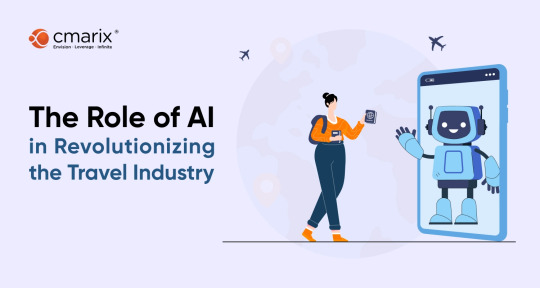
How AI is Revolutionizing the Travel Industry for Greater Impact
AI is reshaping the travel industry, bringing personalized experiences and operational efficiency to the forefront. As a leading travel software development company, CMARIX highlights how AI enhances travel through tailored recommendations, streamlined booking, and automated customer service. AI-driven tools like chatbots provide instant support, while predictive analytics help companies stay ahead of trends. Embracing AI not only elevates travel experiences but also drives innovation and efficiency in the industry.
#AI in travel industry#AI application in tourism industry#Artificial Intelligence in travel industry#AI in travel and hospitality
1 note
·
View note
Text

Sunrise in Goolwa, SA. This was taken just before the Australian Tour Downunder started
#original photography#photographers on tumblr#australian photography#australian photographer#original photographer#south australia#travel photography#landscape photography#nature#sunrise photography#goolwa#cycling#‘Australian Tour Downunder#tourism industry#local businesses
12 notes
·
View notes
Text

RR Hasija: Expert Travel and Tourism Industry Consulting Services for Eco-Friendly Solutions
In fact, RR Hasija is counted amongst the leading players within the Travel and Tourism Industry Consulting Services for the travel and tourist business due to its unparalleled blend of industry insight, analytical acumen, and people skills. It strives to help India with all eco-friendly travel and tourist options. So, for those of you now considering the time to think not only of how to travel but also how to do so more sustainably and with greater mindfulness, contact RR Hasija, the top travel advisory company.
0 notes